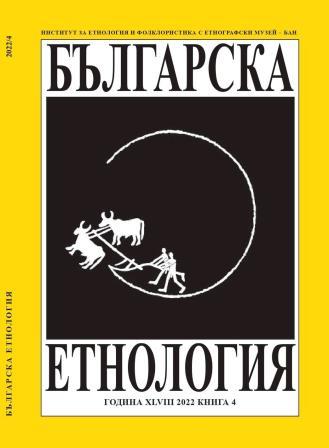От Молдовския Кортен до Алтай и обратно в Тарутино, Украйна. „Голямата“ тема за съветските депортации в „малките“ истории на българите от Бесарабия. Част 2
From the Moldavian Corten to Altai and Back to Tarutino, Ukraine. The “Big” Subject of Soviet Deportations in the “Small” Stories of the Bulgarians from Bessarabia. Part 2
Author(s): Galin GeorgievSubject(s): History, Anthropology, Social Sciences, Customs / Folklore, Ethnohistory, Recent History (1900 till today), Cultural Anthropology / Ethnology, Culture and social structure , Nationalism Studies, Migration Studies, Ethnic Minorities Studies, Identity of Collectives
Published by: Институт за етнология и фолклористика с Етнографски музей при БАН
Keywords: collective memory; dispossession; deportation; Urals; Altai; Siberia; return
Summary/Abstract: The first part of this research, published in the previous issue 3/2022 of the journal “BulgarianEthnology”, touched on the historiographical, theoretical-methodological and terminological aspects of the present study, dedicated to an increasingly discussed and developed topic in the post-Soviet space. This is the subject of the collective memory which covers the turbulent decades of the 1940s and 1950s., as well as the ongoing processes of collectivization of the property, the inherent repressions, the so-called dispossessing (dekulakization) and the deportation of whole families within the USSR, tearing them away from their places of birth,forcing them to settle down for a long time in the remote and vaguely known northern parts ofthe vast country. Hundreds of thousands of people were forcibly removed and coerced to live inisolation, to work and carry out the orders of the Stalinist regime until the very death of JosephStalin in 1953, in the extremely harsh climatically and poorly developed territories such asCentral Asia, Kazakhstan, the Urals, Altai and Siberia. Rehabilitated after that year, they wereallowed to return to their native lands, but a large number did not manage to restore their homesand property, while some could not settle closer than 40 km to the settlements they lived in priorto the deportation. Similar cases are not a rarity for the region of Bessarabia, which was brieflyunder Soviet rule in 1941 and from 1944 until 1991. As it is known, one of the largest and oldestBulgarian historical communities is located in this area, which after the collapse of the SovietUnion fell within the borders of the modern states of Ukraine and Moldova.The subject of the present study is precisely such a “small” case of dispossessed anddeported as a result of the so-called operation South Bulgarian families from the villageof Korten (or Kiryutnya) in the then Moldavian SSR, who for nearly a decade (from 1949roughly to 1959) resided in several settlements of the Bistroistotsky and Biysky districts ofthe Altai Krai, Russia. Since some of these 80 families were not allowed to return to theirnative Korten, they chose to settle in the town of Tarutino and in some of the surrounding settlements such as Podgornoe, Berezino, etc., located nowadays on Ukrainian territory, in the region of Odesa.
Journal: Българска етнология
- Issue Year: 2022
- Issue No: 4
- Page Range: 474-495
- Page Count: 22
- Language: Bulgarian

